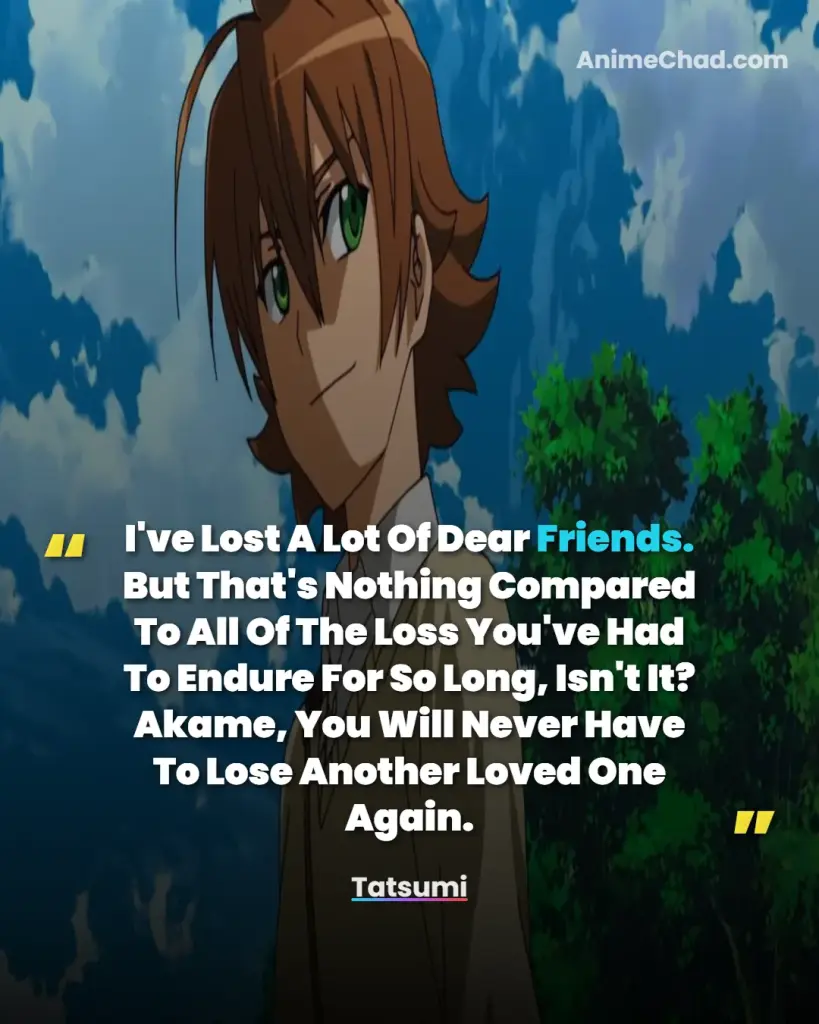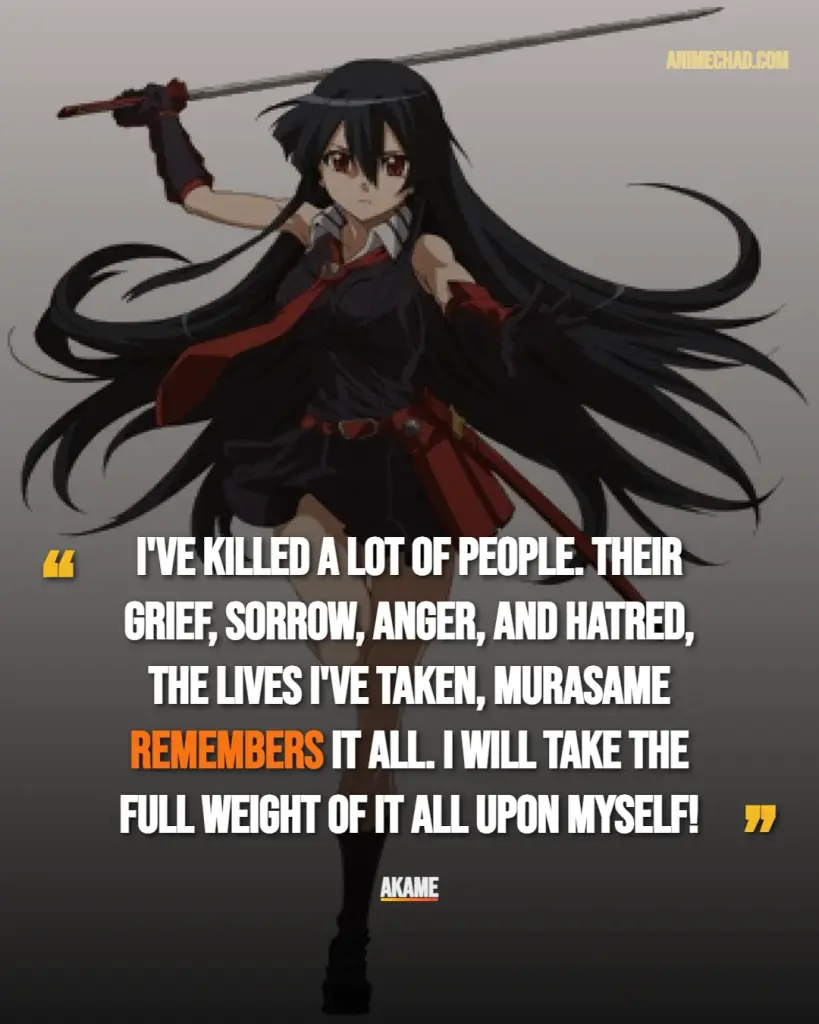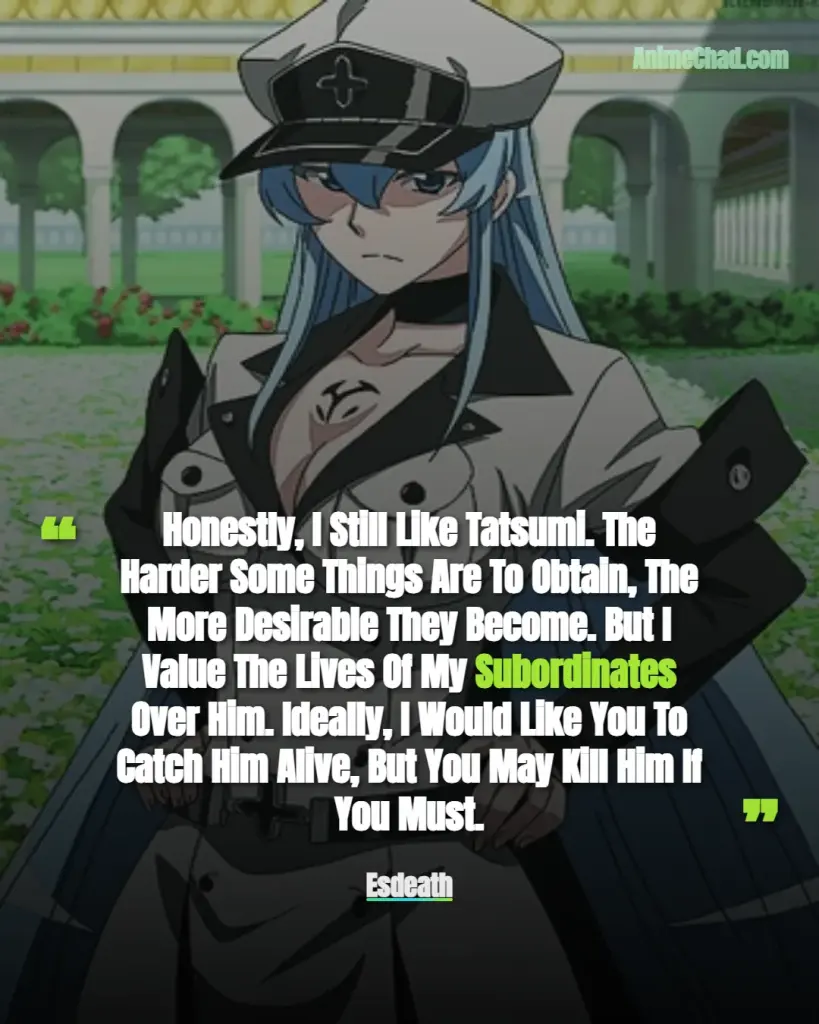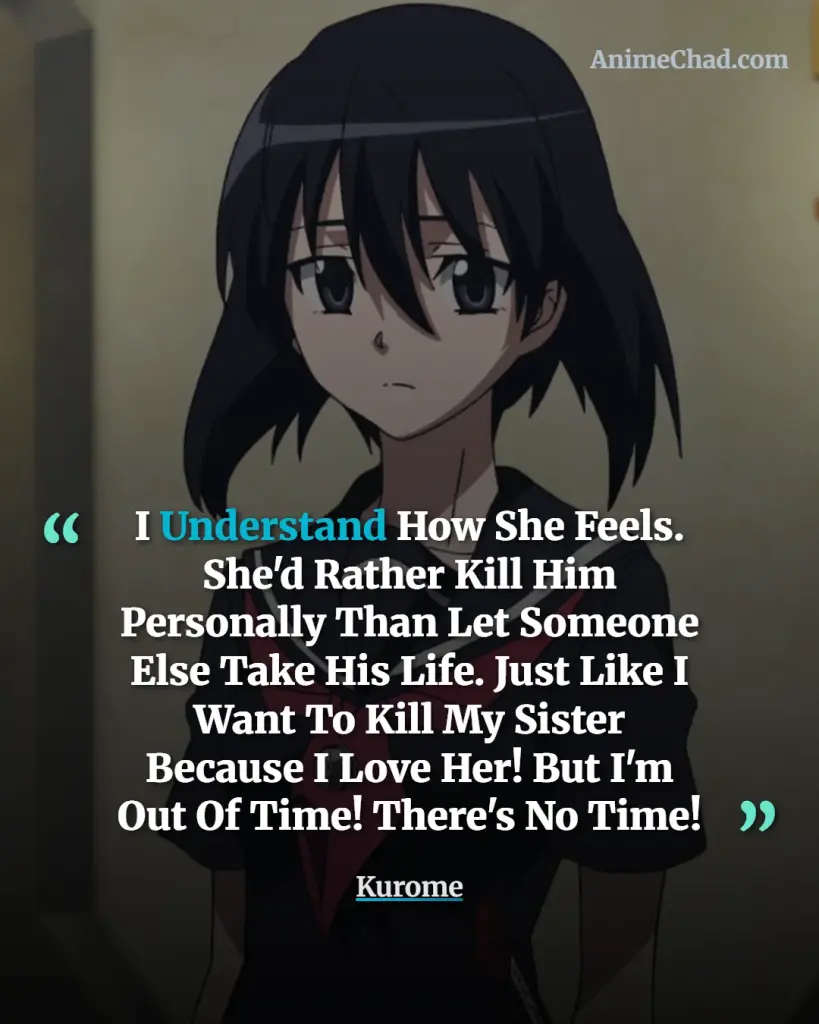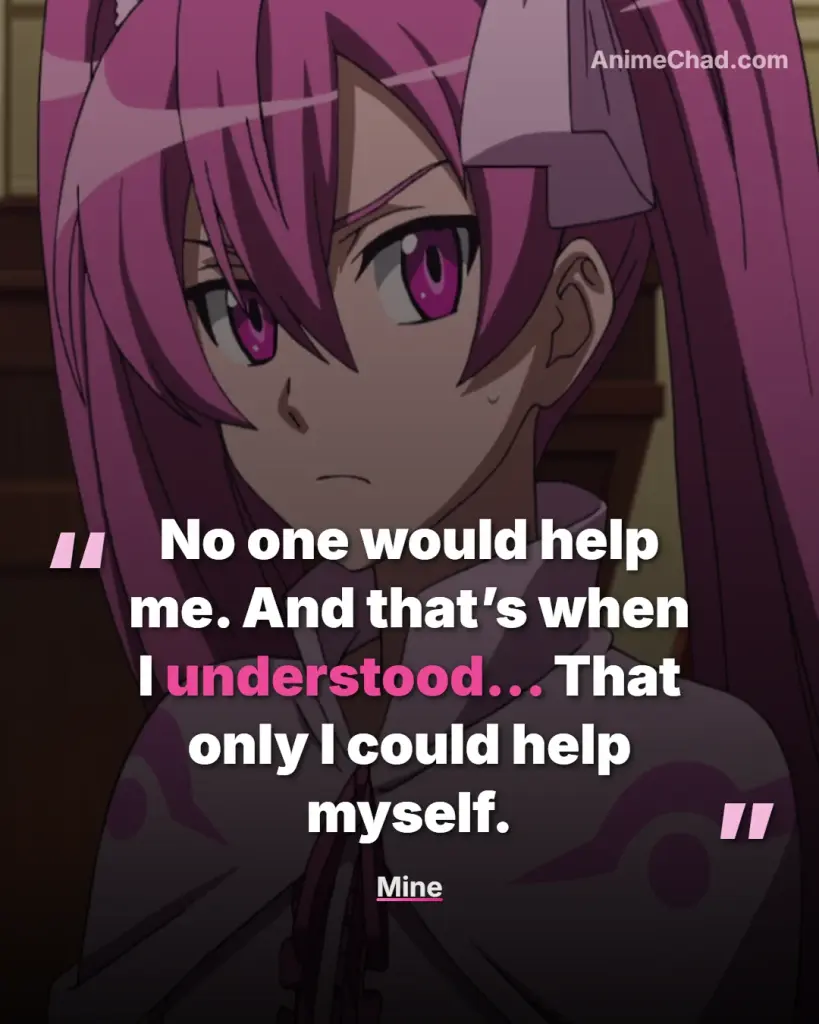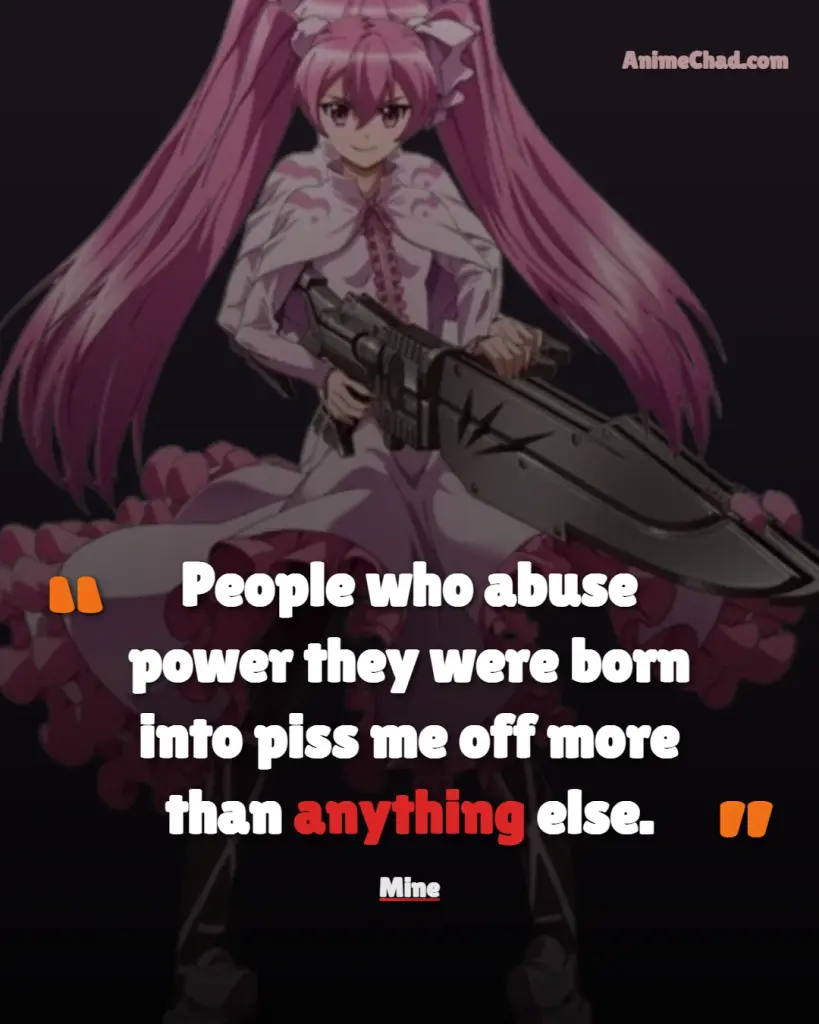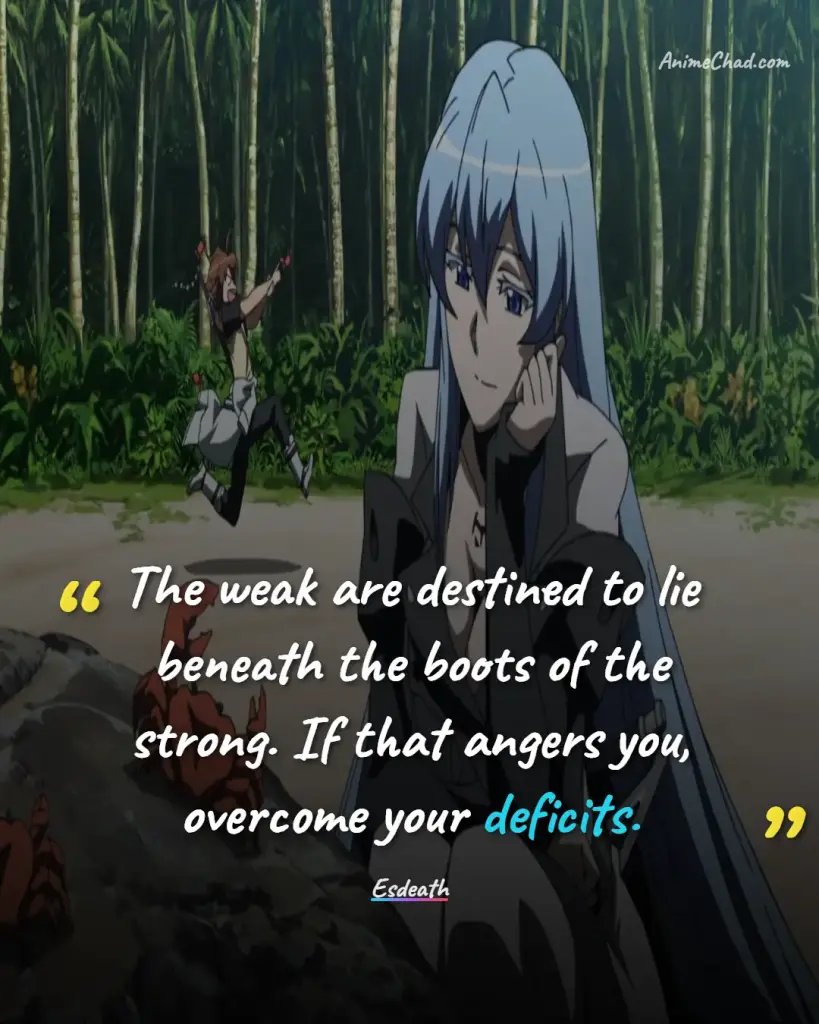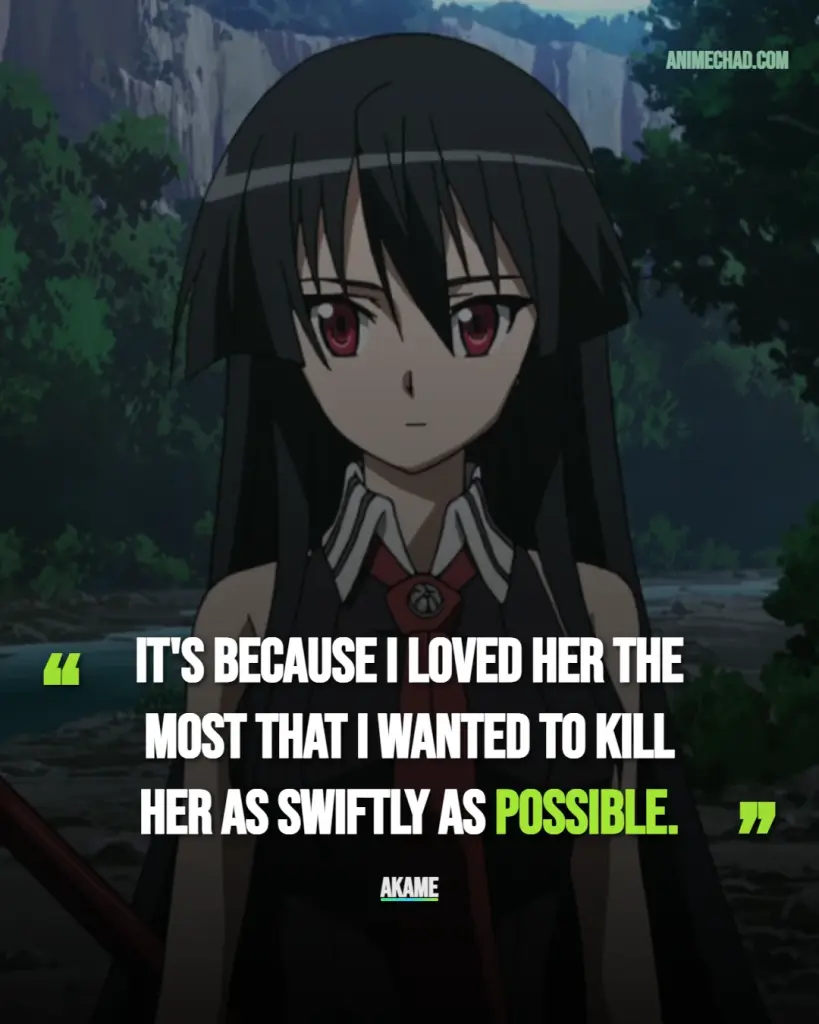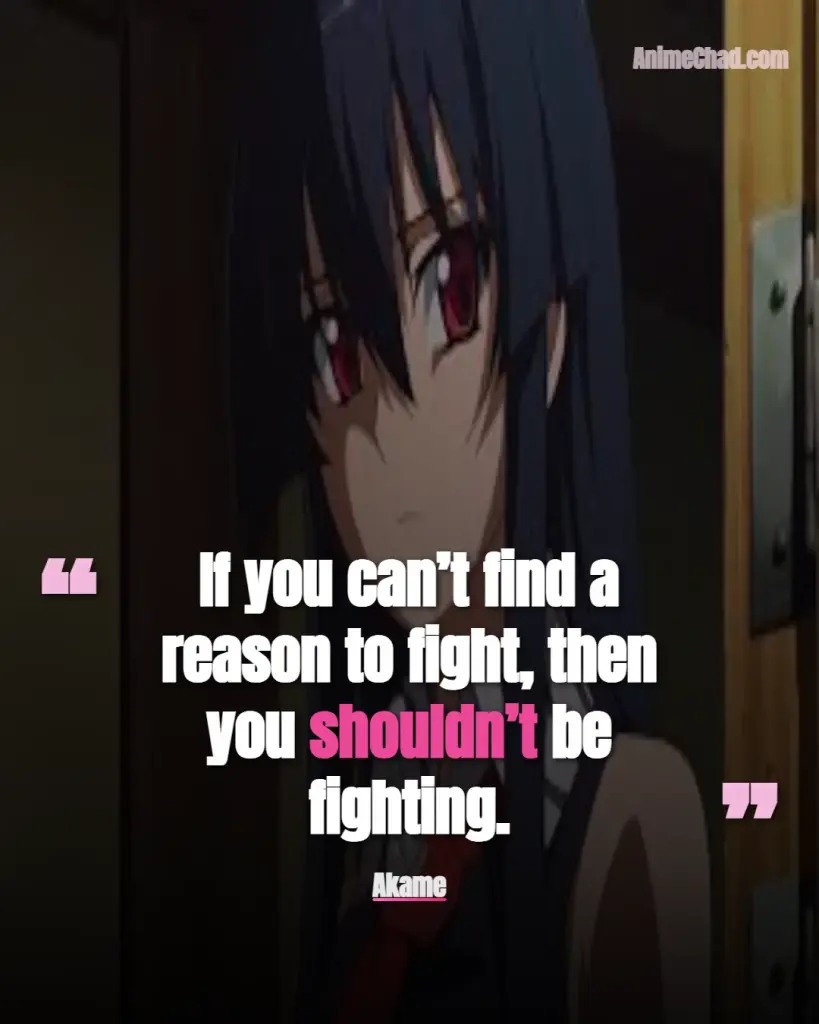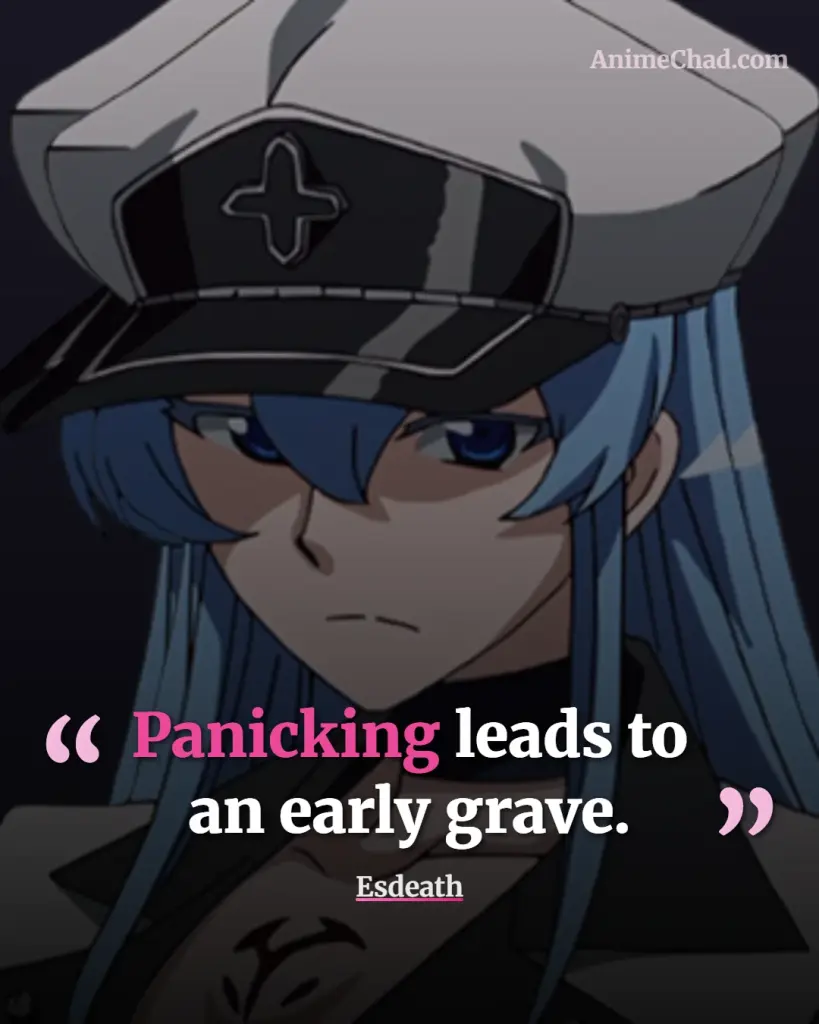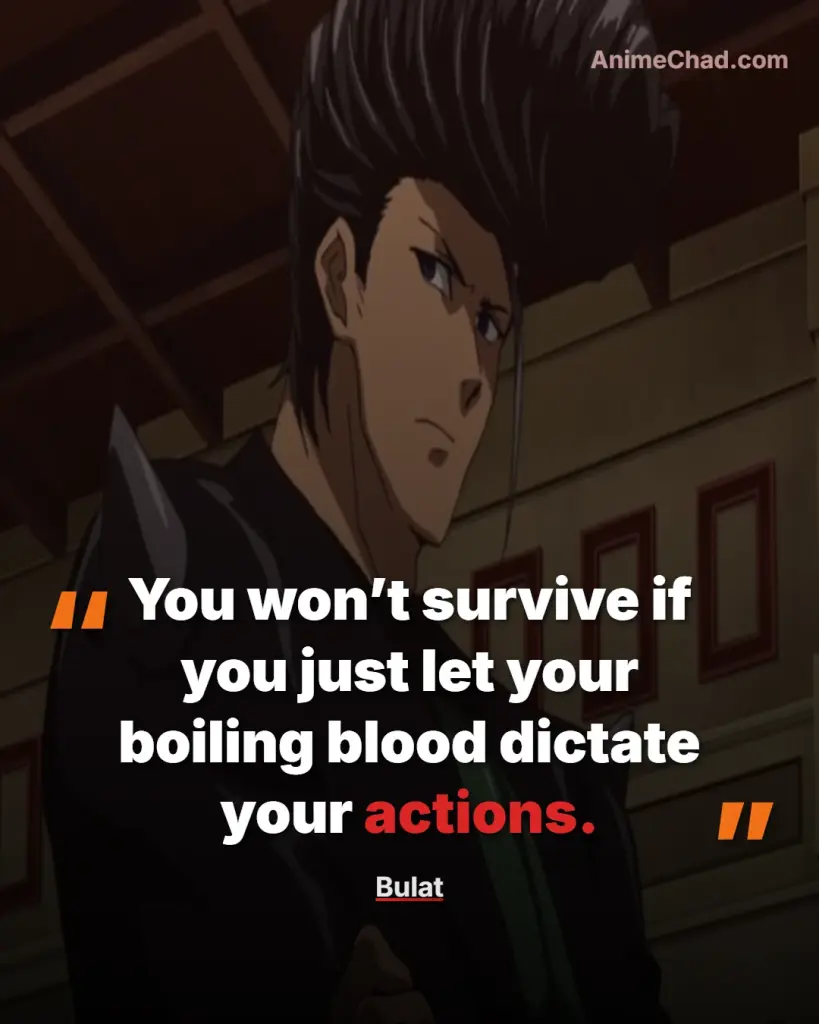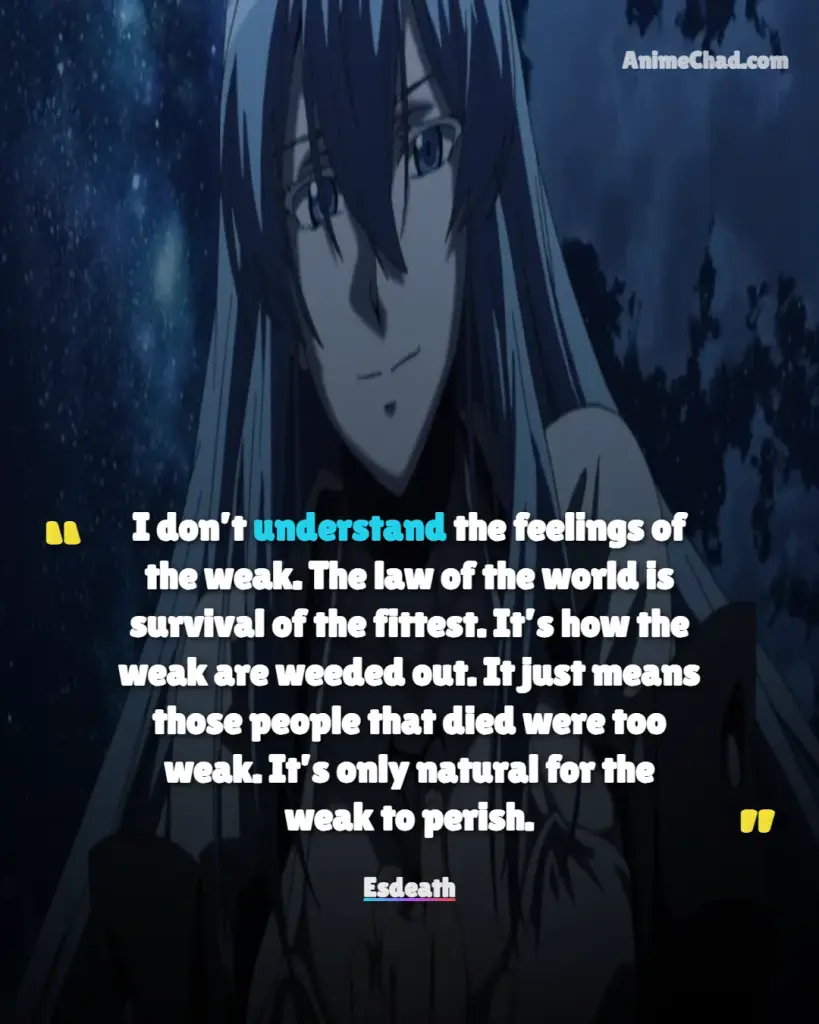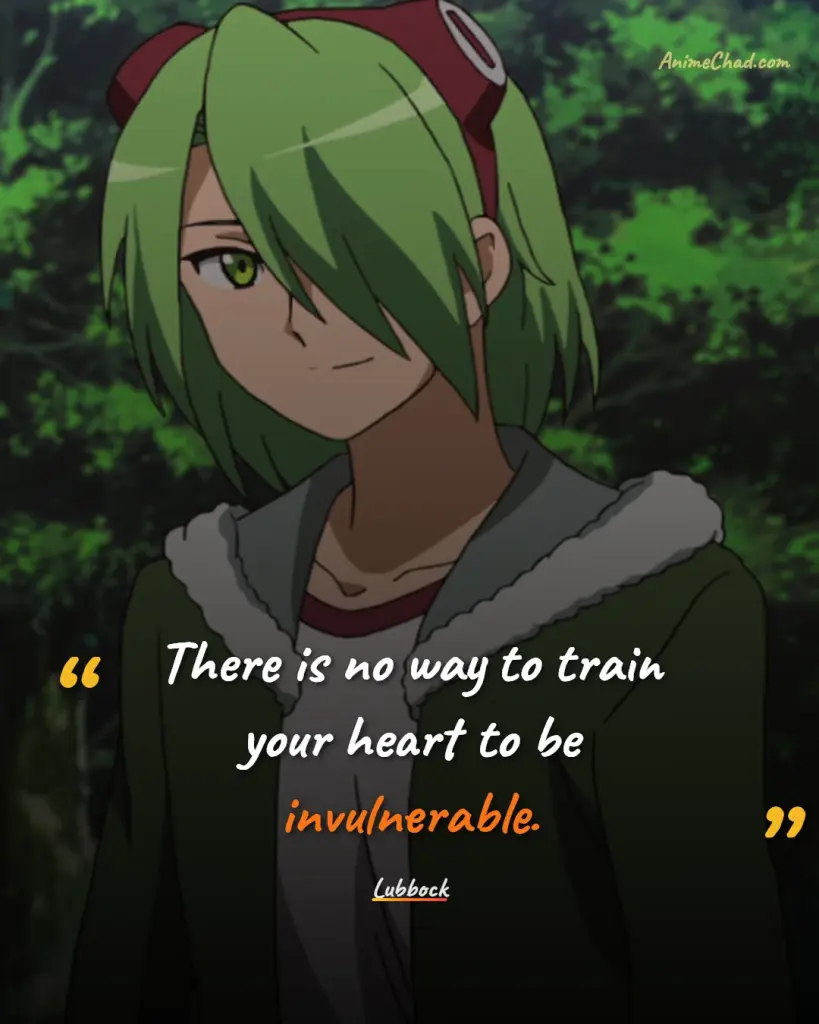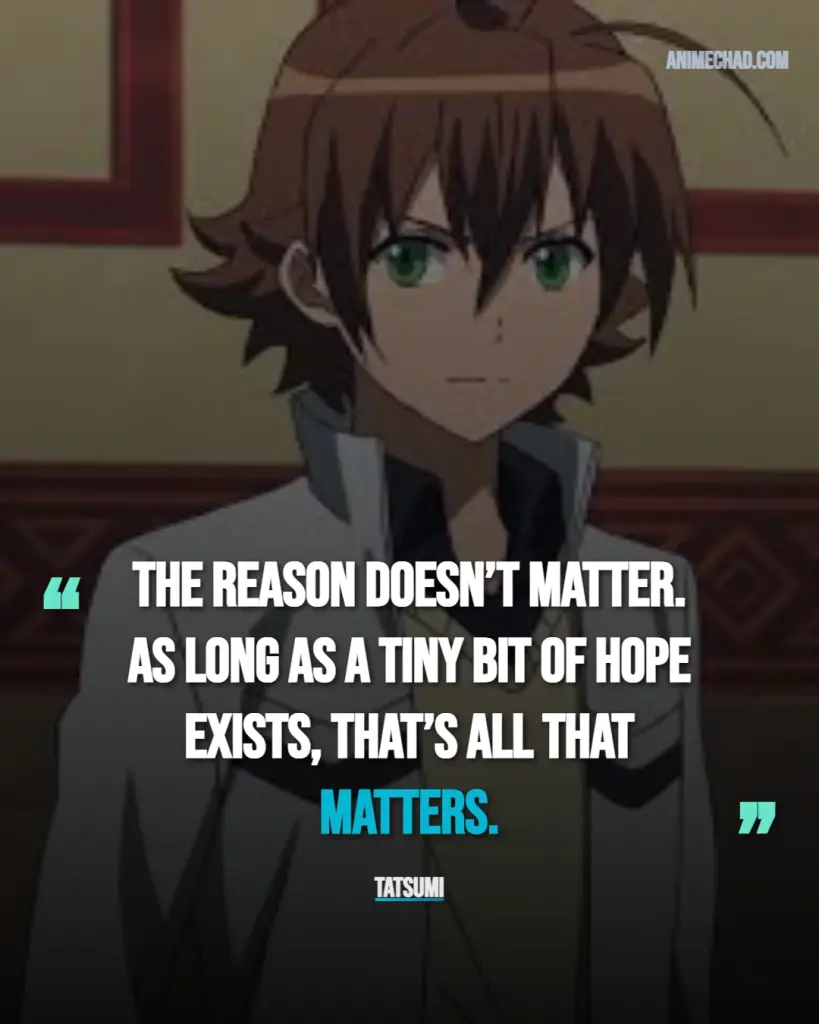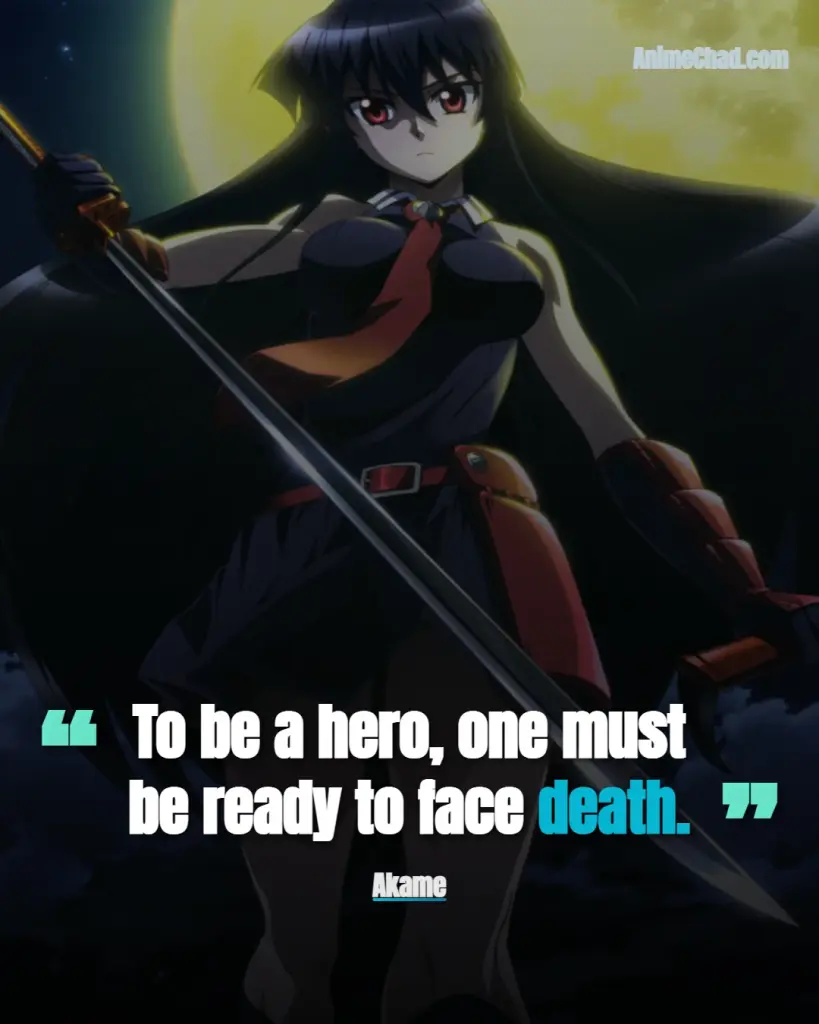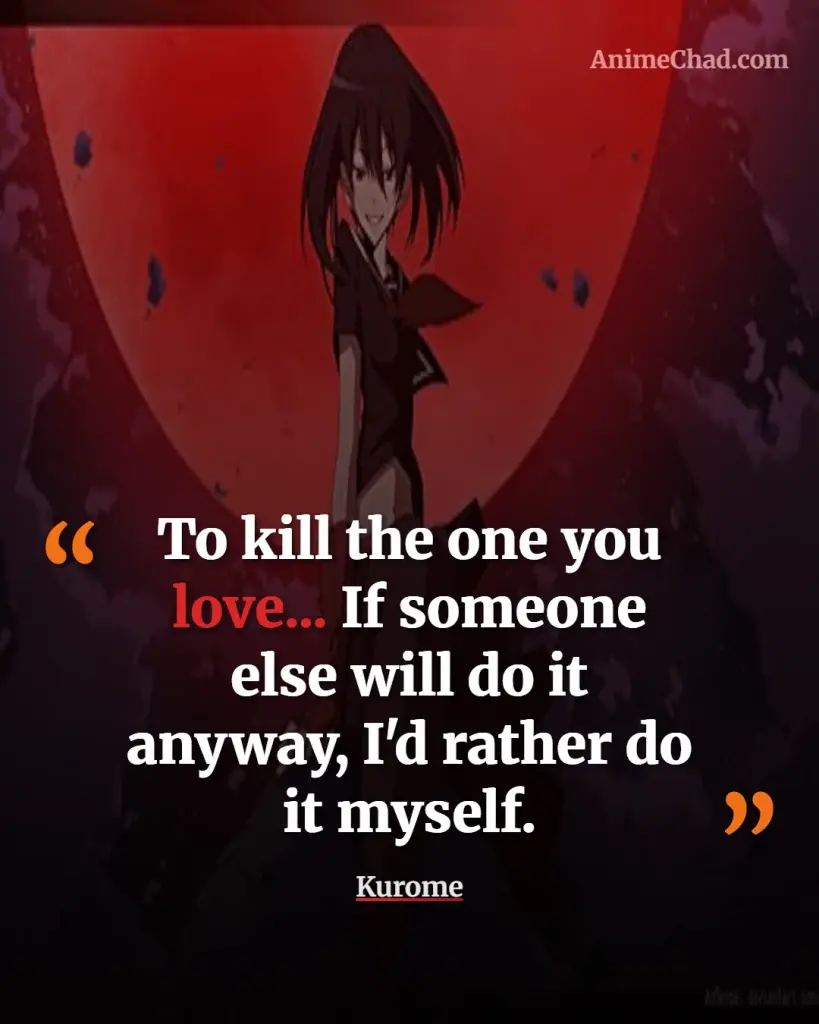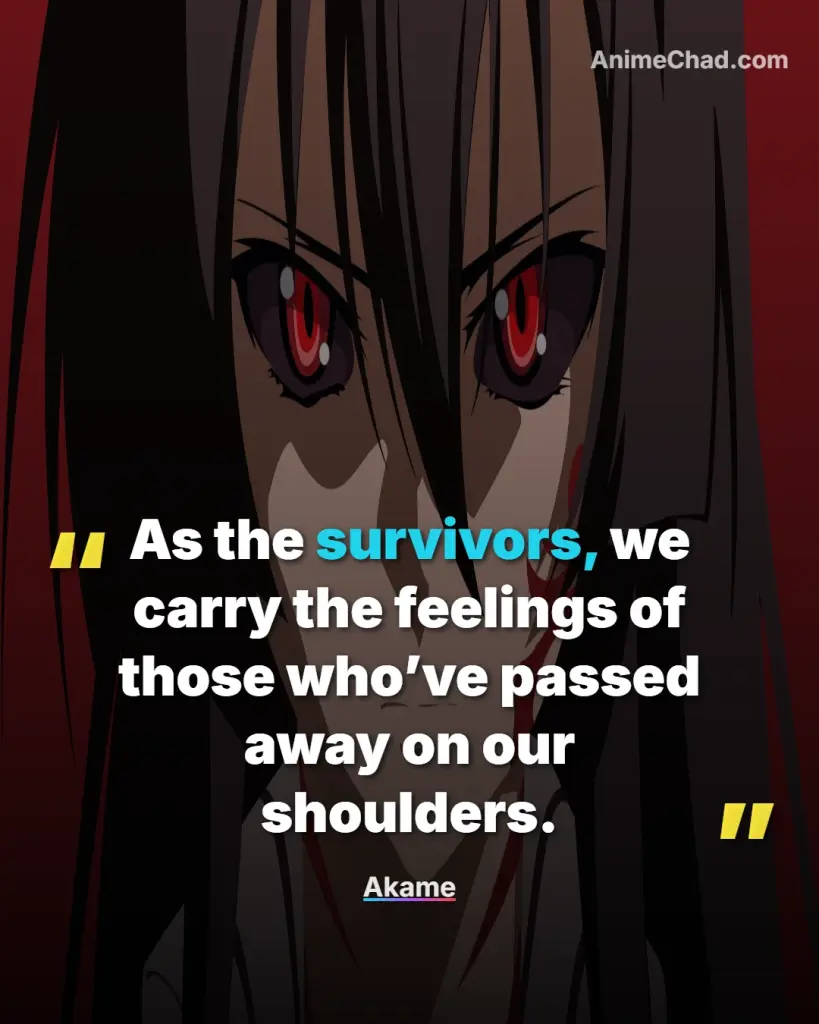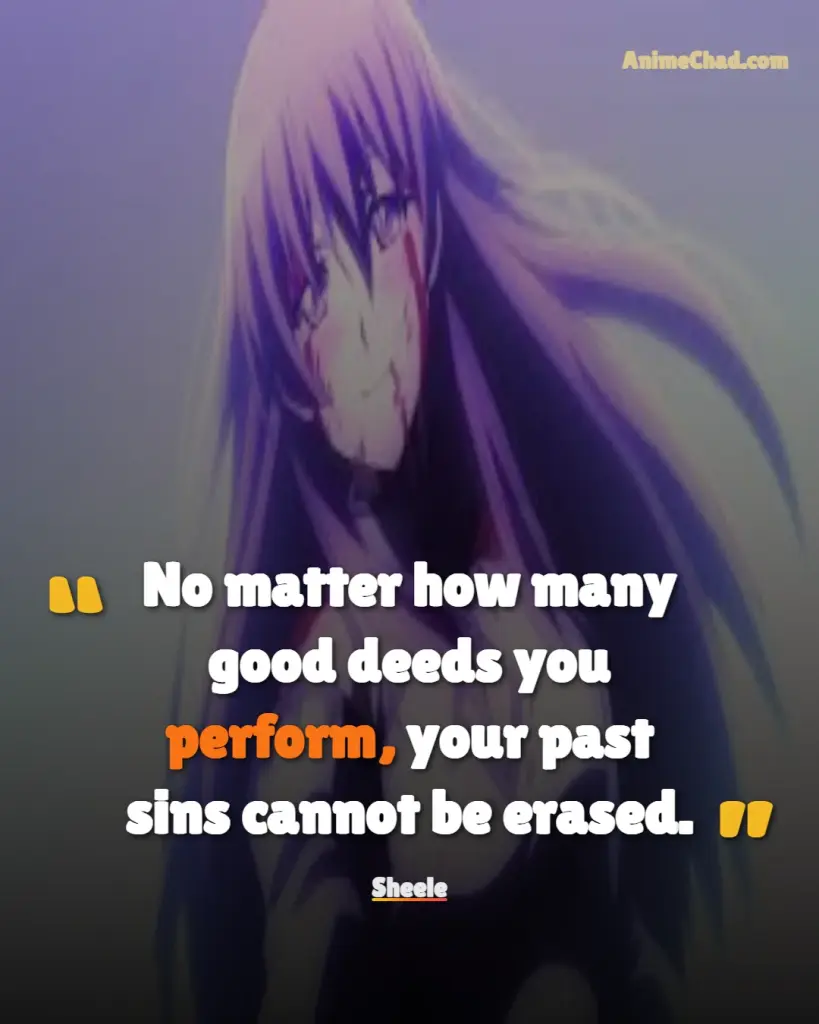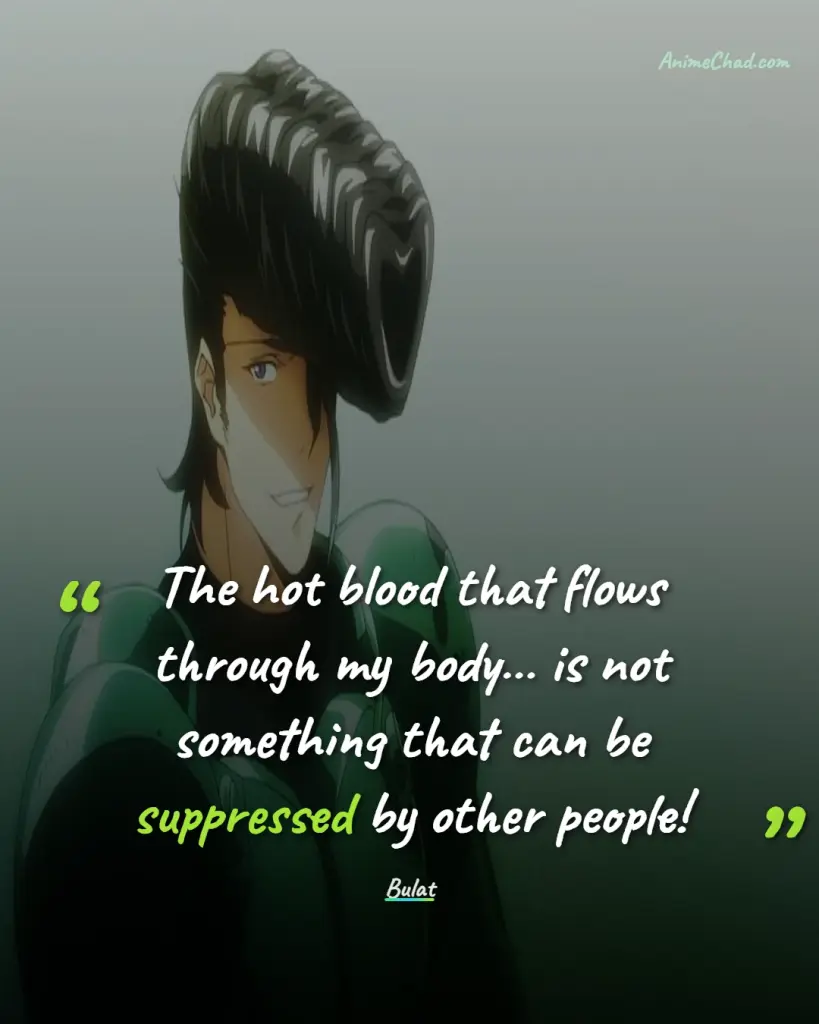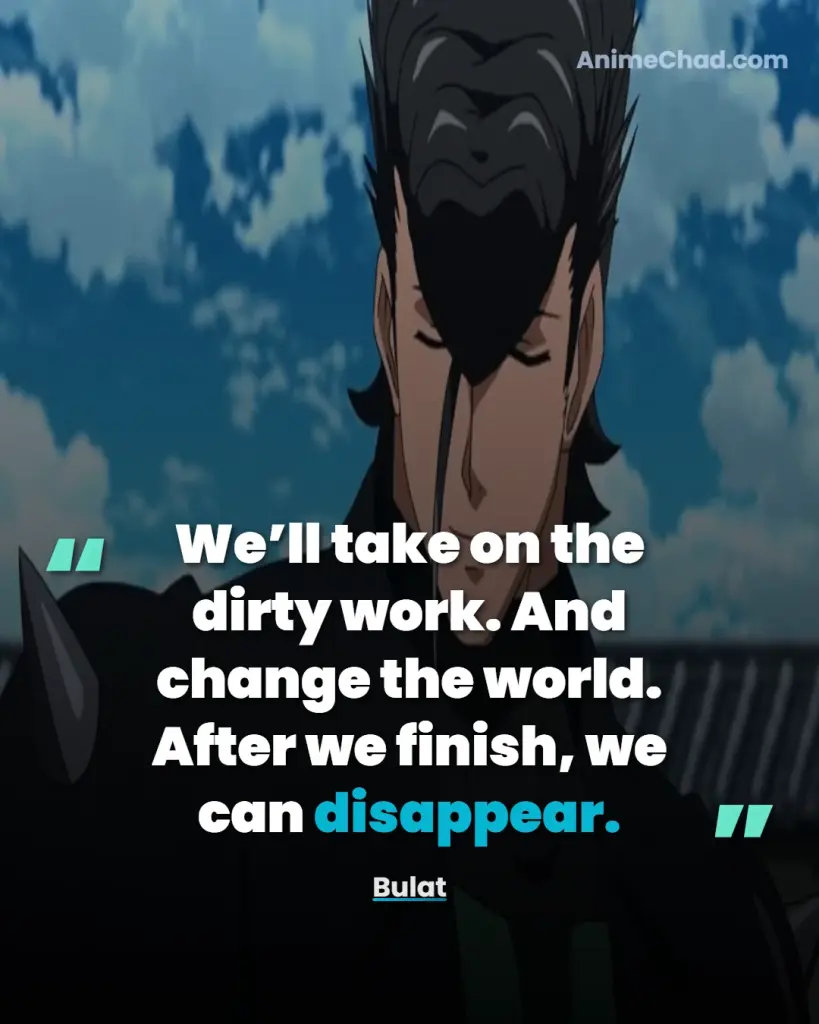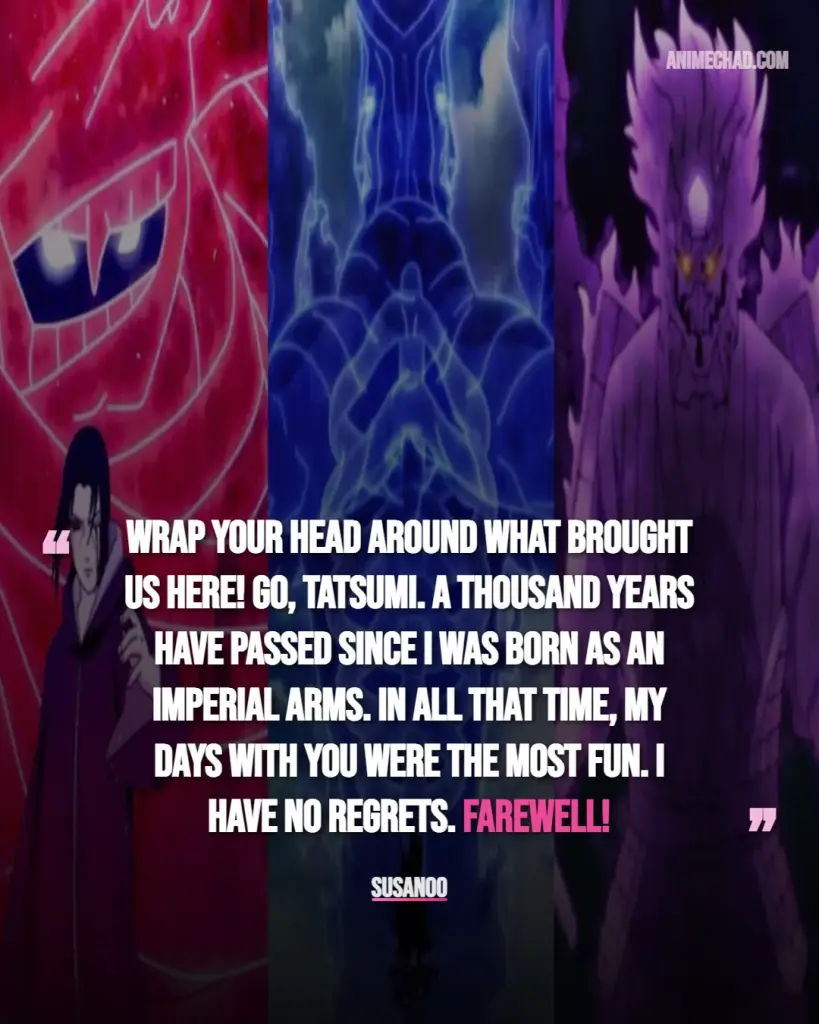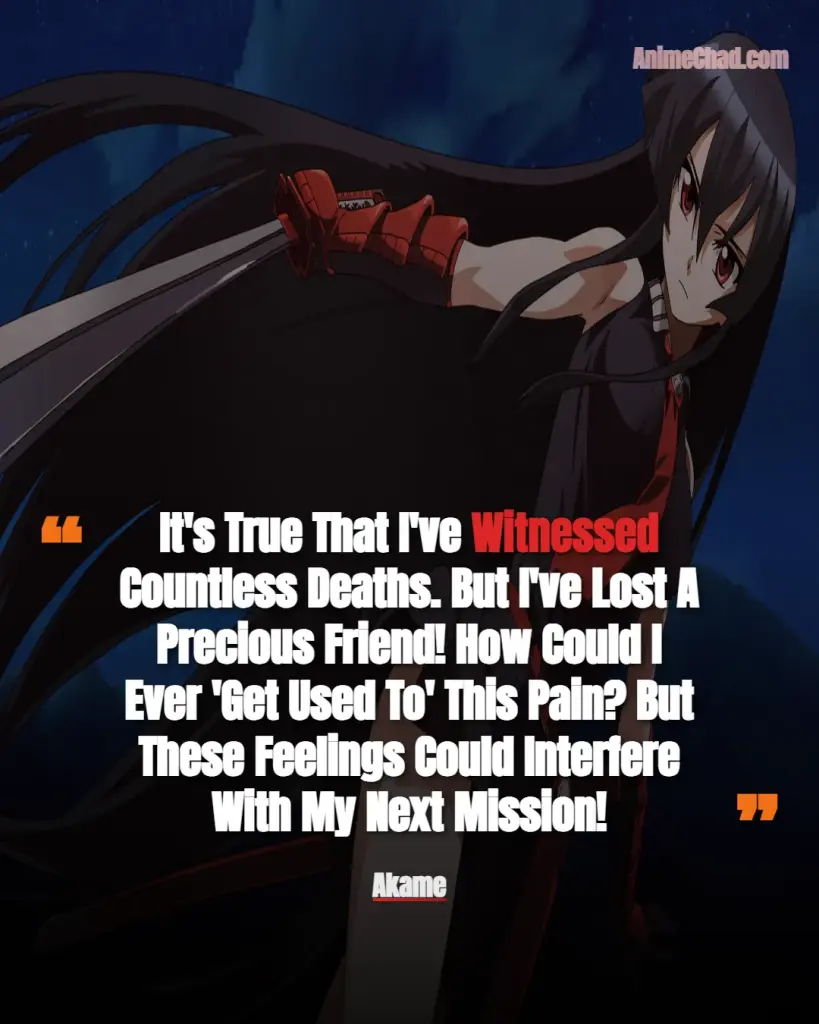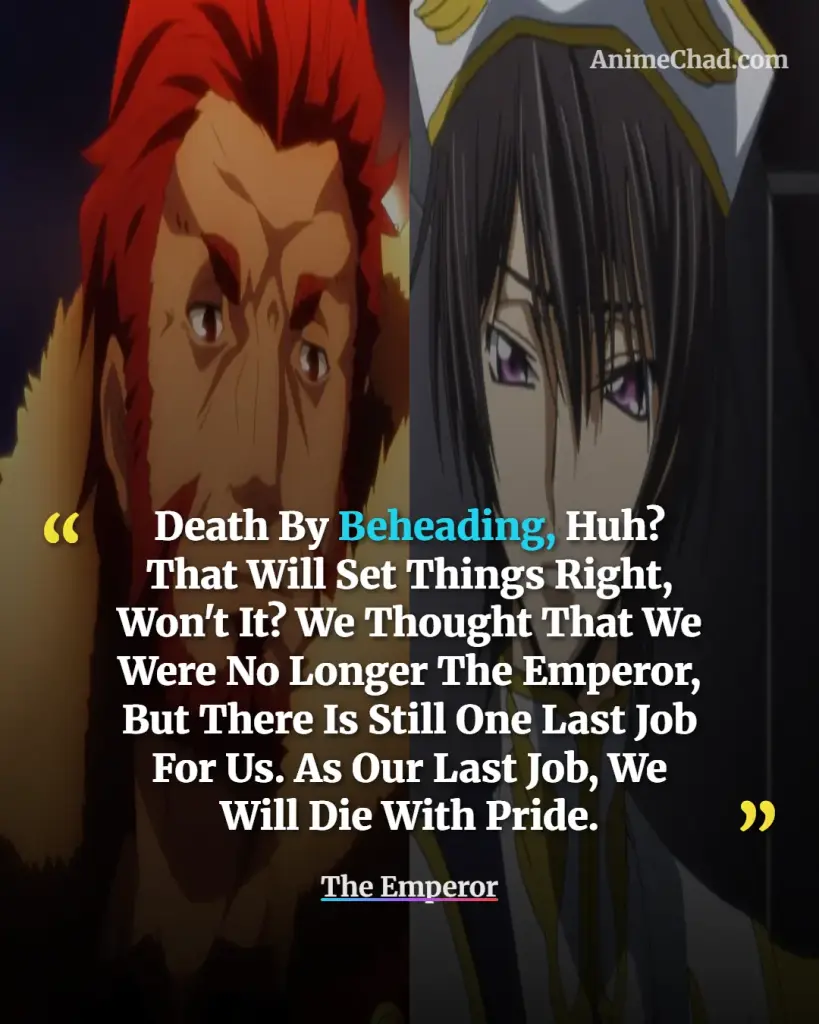Akame ga Kill! is a dark fantasy series centered on Tatsumi, a naive young warrior who joins the assassin group Night Raid to combat a tyrannical empire’s corruption. It explores profound themes like the cost of revolution, survival of the fittest, the burden of loss, and the blurred lines between justice and vengeance. This curated collection of 25 quotes highlights pivotal moments of character development, emotional resonance, and thematic depth, drawing from both intense battles and quieter reflections across the story’s arcs.
I’ve Lost A Lot Of Dear Friends. But That’s Nothing Compared To All Of The Loss You’ve Had To Endure For So Long, Isn’t It? Akame, You Will Never Have To Lose Another Loved One Again.
Episode: 24 (Akame ga Kill!)
Speaker: Tatsumi
Context: Tatsumi comforts Akame post-loss, emphasizing enduring grief’s weight, his empathy growth, and themes of unbreakable bonds amid sacrifice.
I’ve Killed A Lot Of People. Their Grief, Sorrow, Anger, And Hatred, The Lives I’ve Taken, Murasame Remembers It All. I Will Take The Full Weight Of It All Upon Myself!
Episode: 24 (Akame ga Kill!)
Speaker: Akame
Context: In a climactic battle, Akame shoulders her kills’ emotional toll, showcasing her haunted development and the series’ violence burden theme.
Honestly, I Still Like Tatsumi. The Harder Some Things Are To Obtain, The More Desirable They Become. But I Value The Lives Of My Subordinates Over Him. Ideally, I Would Like You To Catch Him Alive, But You May Kill Him If You Must.
Episode: 13 (Kill the Nuisances)
Speaker: Esdeath
Context: Esdeath’s orders reveal her obsessive love conflicting with duty, highlighting her ruthless evolution and survival-of-the-fittest worldview.
I Understand How She Feels. She’d Rather Kill Him Personally Than Let Someone Else Take His Life. Just Like I Want To Kill My Sister Because I Love Her! But I’m Out Of Time! There’s No Time!
Episode: 22 (Kill the Little Sister)
Speaker: Kurome
Context: Kurome’s twisted affection for her sister exposes sibling tragedy’s pain, her fragile psyche, and themes of love twisted by corruption.
No one would help me. And that’s when I understood… That only I could help myself.
Episode: 15 (Kill the Giant Danger Beast)
Speaker: Mine
Context: Mine reflects on her lonely past, marking self-reliance growth, emotional resilience, and the theme of overcoming discrimination through will.
People who abuse power they were born into piss me off more than anything else.
Episode: 5 (Kill the Dreams)
Speaker: Mine
Context: Mine’s rage against elites fuels her justice fight, showing fiery development from victim to revolutionary, tying to anti-corruption themes.
The weak are destined to lie beneath the boots of the strong. If that angers you, overcome your deficits.
Episode: 9 (Kill the Battle Fanatic)
Speaker: Esdeath
Context: Esdeath’s philosophy in battle underscores her unyielding strength, character as an antagonist, and the series’ harsh survival Darwinism.
The places you burned down are beyond recovery. About That Kid, She Lived In One Of The Villages You Incinerated Under Suspicion Of Aiding The Revolutionary Army.
Episode: 17 (Kill the Curse)
Speaker: Chelsea
Context: Chelsea’s vengeful reveal exposes war’s irreversible scars, her brief arc’s tragedy, and themes of innocent suffering in revolution.
It’s because I loved her the most that I wanted to kill her as swiftly as possible.
Episode: 22 (Kill the Little Sister)
Speaker: Akame
Context: Akame’s merciful kill of her sister conveys heartbreaking duty over love, profound grief, and development in facing personal loss.
To be a hero, one must be ready to face death.
Episode: 1 (Kill the Darkness)
Speaker: Akame
Context: Akame’s early warning sets heroic sacrifice tone, her stoic growth from assassin to symbol of hope amid constant peril.
Panicking leads to an early grave.
Episode: 10 (Kill the Temptation)
Speaker: Esdeath
Context: Esdeath’s calm advice in combat highlights her tactical mindset, villainous poise, and the theme of composure in life-or-death struggles.
You won’t survive if you just let your boiling blood dictate your actions.
Episode: 3 (Kill the Authority)
Speaker: Bulat
Context: Bulat mentors Tatsumi on restraint, fostering his maturity from impulsive youth, connecting to themes of controlled passion in revolution.
I don’t understand the feelings of the weak. The law of the world is survival of the fittest. It’s how the weak are weeded out. It just means those people that died were too weak. It’s only natural for the weak to perish.
Episode: 9 (Kill the Battle Fanatic)
Speaker: Esdeath
Context: Esdeath’s worldview during a fight reveals her emotionless strength, antagonist depth, and the series’ critique of power imbalances.
There is no way to train your heart to be invulnerable.
Episode: 7 (Kill the Three – Part 1)
Speaker: Lubbock
Context: Lubbock admits emotional fragility in a quiet moment, showing hidden vulnerability, character warmth, and themes of human cost in war.
Wrong or not, I’ll follow my own path!
Episode: 15 (Kill the Giant Danger Beast)
Speaker: Mine
Context: Mine’s defiant stand marks her arc from insecurity to bold independence, embodying personal conviction amid moral ambiguity.
The reason doesn’t matter. As long as a tiny bit of hope exists, that’s all that matters.
Episode: 12 (Kill the New Members)
Speaker: Tatsumi
Context: Tatsumi clings to hope in despair, illustrating his optimistic growth, emotional uplift, and revolutionary persistence theme.
If you can’t find a reason to fight, then you shouldn’t be fighting.
Episode: 2 (Kill the Imperial Arms Users)
Speaker: Akame
Context: Akame’s principle in training underscores purposeful violence, her disciplined development, and the series’ exploration of justified rebellion.
To kill the one you love… If someone else will do it anyway, I’d rather do it myself.
Episode: 22 (Kill the Little Sister)
Speaker: Kurome
Context: Kurome’s tragic rationale exposes love’s dark side, her broken psyche’s depth, and familial bonds strained by empire’s cruelty.
As the survivors, we carry the feelings of those who’ve passed away on our shoulders.
Episode: 6 (Kill the Absolute Justice)
Speaker: Akame
Context: Akame reflects on grief’s burden post-battle, highlighting survivor guilt, her quiet strength, and themes of legacy in loss.
No matter how many good deeds you perform, your past sins cannot be erased.
Episode: 4 (Kill the Imperial Arms User)
Speaker: Sheele
Context: Sheele’s introspection on redemption reveals inner torment, gentle yet lethal nature, and the unerasable scars of violence theme.
The hot blood that flows through my body… is not something that can be suppressed by other people!
Episode: 3 (Kill the Authority)
Speaker: Bulat
Context: Bulat’s passionate declaration in fight inspires, showing his heroic spirit, mentorship role, and unyielding drive for change.
We’ll take on the dirty work. And change the world. After we finish, we can disappear.
Episode: 8 (Kill the Three – Part 2)
Speaker: Bulat
Context: Bulat’s vow to Tatsumi conveys selfless sacrifice, his tragic heroism, and Night Raid’s shadowy path to societal reform.
Wrap Your Head Around What Brought Us Here! Go, Tatsumi. A Thousand Years Have Passed Since I Was Born As An Imperial Arms. In All That Time, My Days With You Were The Most Fun. I Have No Regrets. Farewell!
Episode: 21 (Kill the Despair)
Speaker: Susanoo
Context: Susanoo’s farewell sacrifice evokes heartfelt loyalty, his brief joy in bonds, and themes of fleeting connections in eternal struggle.
It’s True That I’ve Witnessed Countless Deaths. But I’ve Lost A Precious Friend! How Could I Ever ‘Get Used To’ This Pain? But These Feelings Could Interfere With My Next Mission!
Episode: 5 (Kill the Dreams)
Speaker: Akame
Context: Akame’s outburst reveals suppressed sorrow, humanizing her stoicism, development through vulnerability, and the emotional toll of assassinations.
Death By Beheading, Huh? That Will Set Things Right, Won’t It? We Thought That We Were No Longer The Emperor, But There Is Still One Last Job For Us. As Our Last Job, We Will Die With Pride.
Episode: 24 (Akame ga Kill!)
Speaker: The Emperor
Context: The Emperor’s dignified acceptance of fate shows naive growth to accountability, tragic redemption, and themes of corrupted innocence’s end.

